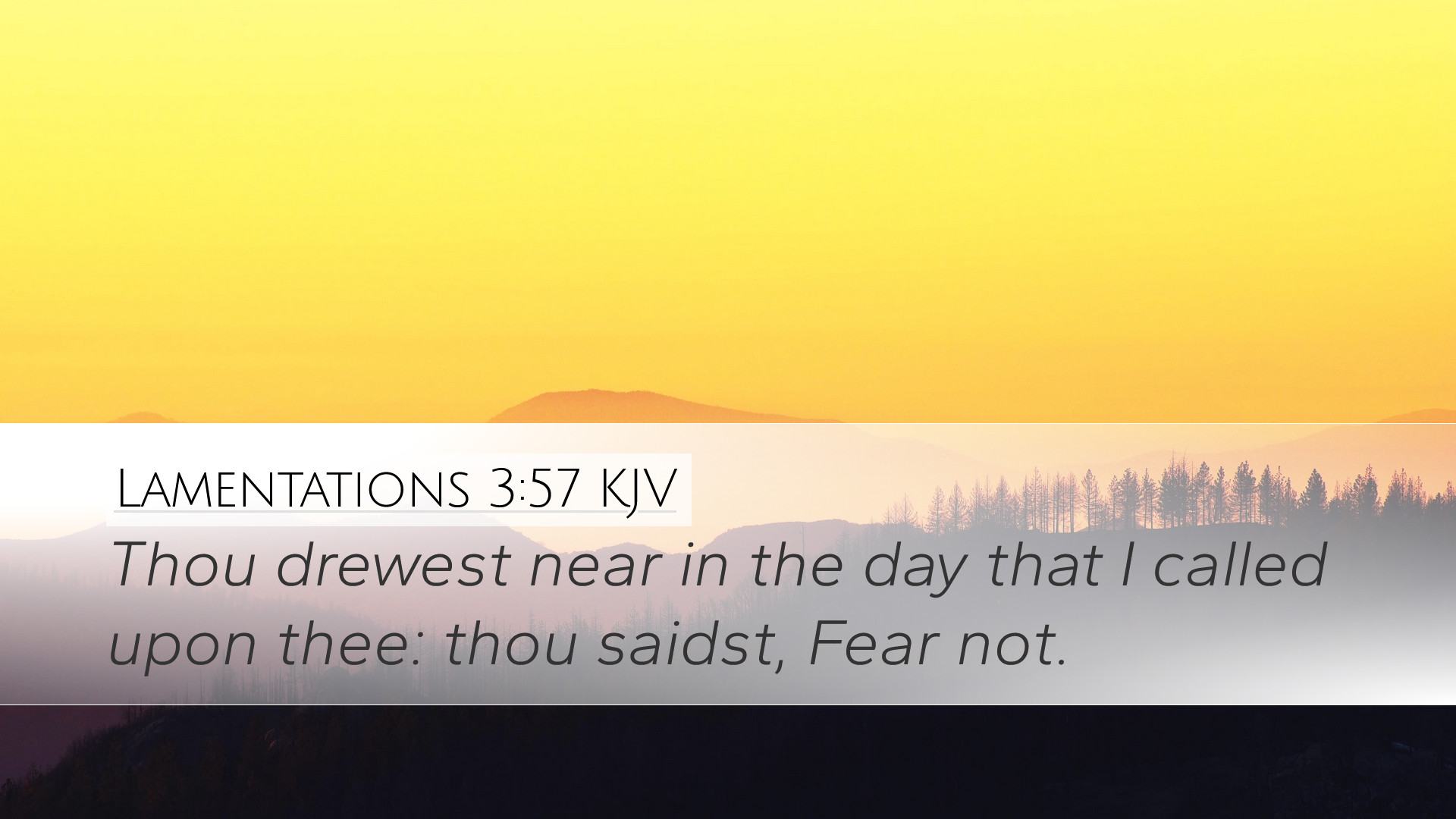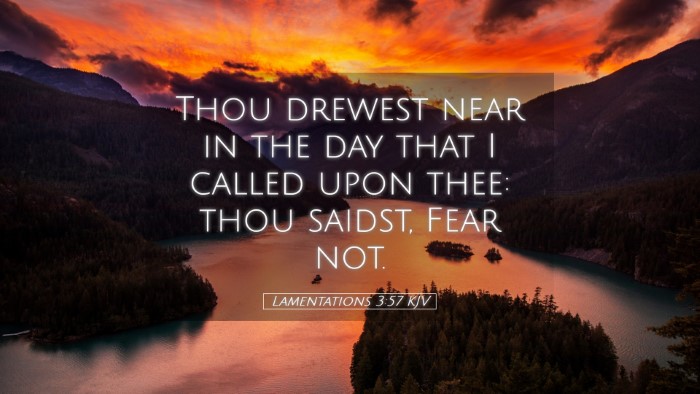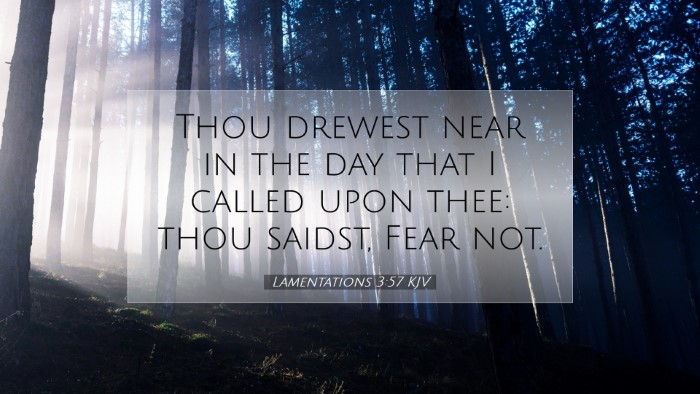Lamentations 3:57 Commentary
Verse: "Thou drewest near in the day that I called upon thee: thou saidst, Fear not." (Lamentations 3:57)
Introduction
The Book of Lamentations presents a poignant expression of grief from the prophet Jeremiah, who laments the desolation of Jerusalem. Lamentations 3:57 offers a profound message of hope amidst suffering, illustrating God's nearness and comforting presence in times of distress. This verse serves as a bridge between despair and faith, showcasing both the human experience of lament and the divine response to it.
Contextual Background
To fully understand Lamentations 3:57, it is crucial to consider the context of the surrounding verses. The third chapter is a personal reflection on suffering, with Jeremiah recounting his own trials and the state of his people. His lament leads into a series of confessions about God's character and His faithfulness, even in the face of overwhelming grief.
Exegesis of the Verse
The verse begins with the statement,
"Thou drewest near in the day that I called upon thee." This signifies a call for divine intervention. It reflects Jeremiah's desperation and his earnest prayer during the days of his affliction.
From the statement "drewest near," we can extract the theological concept of God's immanence. It conveys that, even in Israel's darkest moments, the Lord was actively present.
Matthew Henry emphasizes this presence, noting that God's nearness is a source of encouragement when faced with trial.
The latter part of the verse, "thou saidst, Fear not," expresses God's reassuring promise. In moments of despair, God dispels fear by reminding His people of His faithfulness.
Albert Barnes elaborates on the significance of this phrase; it presents a divine imperative to trust in the Lord's goodness—an essential theme throughout Scripture.
Thematic Insights
-
The Nearness of God:
God’s promise of nearness is a recurring theme in both the Old and New Testaments.
Adam Clarke notes that God’s drawing near reflects His readiness to respond to His people’s cries.
It is an invitation to seek God's presence as a refuge and source of strength amidst calamity.
-
The Call to Prayer:
Jeremiah's calling upon the Lord illustrates the importance of prayer during tribulation. Prayer serves as a lifeline, enabling believers to express their pain while seeking solace and guidance.
Matthew Henry encourages readers to view prayer not merely as a duty, but as a means of fostering intimacy with God.
-
The Reassurance Against Fear:
God's response, "Fear not," emphasizes His sovereign care over His people.
Albert Barnes references the overarching theme of fearlessness found throughout Scripture, presenting it as an antidote to anxiety and despair.
Pastoral Applications
For pastors and church leaders, Lamentations 3:57 serves as a reminder of the pastoral duty to bring comfort to those who mourn and suffer.
Understanding that God is present in our midst encourages ministers to be conduits of His nearness, offering words of hope to the afflicted.
Additionally, this verse challenges leaders to cultivate a culture of prayer within their congregations, where individuals feel empowered to bring their needs before God.
Pastoral counseling can draw from this comforting promise, reminding counselees that God personally assures them of His nearness and care.
Conclusion
Lamentations 3:57 encapsulates a profound truth about God's character in response to human pain.
As believers, we are encouraged to call upon the Lord in times of trouble, knowing that He is near and responsive to our cries.
This verse not only speaks to the individual but also serves to inspire faith communities to embrace prayer and encourage one another in their walk of faith, confident in the promise of God’s presence.


